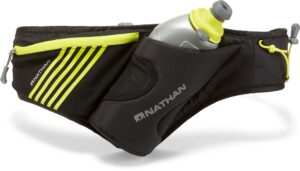Why your sleep tracker may not be as useful as you thought
Here's why you shouldn't rely too much on your watch to tell you how (and how much) you slept
We all know that good sleep is associated with good performance, and runners are increasingly prioritizing sleep. Many swear wearable devices that tell them (besides tracking their workouts) how long and how well they slept. Assuming a goal of seven to eight hours per night, wearables might help reassure us when we’re getting enough, and motivate us to do better when we’re not. But a report from the Harvard Medical School says the information wearables provide may not be as reliable as we thought.
RELATED: Sleep: the easiest way to improve performance

As the article explains, most wrist-based trackers like Fitbit or Apple Watch use an accelerometer and heartrate monitor to deduce from your wrist movements and heartrate activity whether you are asleep (and in some cases, how deeply) or awake. We can then use an app to plot that data on a graph on our phone or computer. Your sleep tracker might even give you a “sleep score” each night, and if you’re into sleep data as much as some runners are into their workout data, that may be the first thing you check when you wake up.
But wrist-based heartrate monitors are notoriously inaccurate, and how the devices are programmed to interpret wrist movement and determine sleep vs. wakefulness is something most companies don’t share with their customers. How long do you have to lie still before the device assumes you’re asleep? And how frequently can you turn over in bed without the device assuming you’re awake? Does it make a difference how tightly the watch is fastened? Nobody really knows the answers to these questions, which throws the accuracy of the information provided into question. The author claims most watches overestimate how much time we spend sleeping–which means we probably are not getting as much sleep as we think.
RELATED: The Shakeout Podcast: Optimizing Sleep with Dr. Amy Bender

The article goes on to explain that in a medical sleep lab, sleep duration and quality are evaluated by simultaneously measuring brainwaves, muscle tone, breathing and heartrate. The process is much more sophisticated than what a watch (even an expensive one) can do.
Bottom line: the information from a watch-based sleep tracker should be used as a rough guide. If it consistently shows you aren’t getting seven to eight hours a night, you’ll definitely want to try to improve your sleep habits by setting an earlier bedtime, avoiding consuming tech for half an hour before going to bed, or incorporating a warm bath into your bedtime routine.
And if it shows that you are getting “enough” sleep, the same thing applies. Don’t assume the information is reliable–assume that you’d probably benefit from more (and better) sleep.


